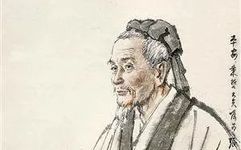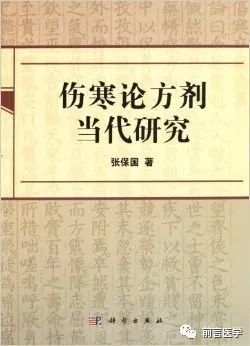
Gui Zhi Tang (Cinnamon Twig Decoction)
1. For Taiyang disease, with fever, sweating, aversion to wind, and a floating weak pulse.
2. For conditions with spontaneous sweating or intermittent fever and sweating.
3. For cases where sweating or purging has not resolved the exterior condition.
4. For Yangming disease, with a slow pulse, despite profuse sweating, and slight aversion to cold, the exterior has not resolved.
5. For cases with diarrhea and a floating weak pulse.
6. For cholera with vomiting and diarrhea, accompanied by persistent body pain.
2. Gui Zhi Jia Gui Tang (Cinnamon Twig Decoction with Cinnamon)
[Key Diagnostic Points] For Gui Zhi Tang syndrome with severe upward Qi counterflow.
3. Gui Zhi Jia Shao Yao Tang (Cinnamon Twig Decoction with Peony)
[Key Diagnostic Points] For Gui Zhi Tang syndrome with abdominal cramping and fullness pain.
4. Gui Zhi Jia Da Huang Tang (Cinnamon Twig Decoction with Rhubarb)
[Key Diagnostic Points] For Gui Zhi Jia Shao Yao Tang syndrome with interior fullness that resists pressure, or constipation.
5. Gui Zhi Jia Ge Gen Tang (Cinnamon Twig Decoction with Kudzu Root)
[Key Diagnostic Points] For Gui Zhi Tang syndrome with stiffness and tightness in the neck and back muscles.
6. Gua Lou Gui Zhi Tang (Trichosanthes and Cinnamon Twig Decoction)
[Key Diagnostic Points] For Gui Zhi Tang syndrome with symptoms of spasm and tightness, thirst, and a deep pulse, can be diagnosed as this formula syndrome.
7. Gui Zhi Jia Huang Qi Tang (Cinnamon Twig Decoction with Astragalus)
[Key Diagnostic Points] For Gui Zhi Tang syndrome with increased sweating, aversion to wind, and no thirst, indicating severe exterior deficiency.
8. Huang Qi Shao Yao Gui Zhi Ku Jiu Tang (Astragalus, Peony, Cinnamon, and Bitter Wine Decoction)
[Key Diagnostic Points] For Gui Zhi Tang syndrome with sweating, aversion to wind, yellow sticky sweat, and thirst.
9. Gui Zhi Jia Fu Zi Tang (Cinnamon Twig Decoction with Aconite)
[Key Diagnostic Points] For Gui Zhi Tang syndrome with obvious sweating and aversion to wind, difficulty urinating, a deep thin pulse, and slight urgency in the limbs.
10. Gui Zhi Jia Shao Yao Sheng Jiang (Cinnamon Twig Decoction with Peony, Fresh Ginger)
[Key Diagnostic Points] For Gui Zhi Tang syndrome with significant body pain, poor appetite, and a deep slow pulse.
11. Gui Zhi Jia Hou Po Xing Zi Tang (Cinnamon Twig Decoction with Magnolia Bark and Apricot Seed)
[Key Diagnostic Points] For Gui Zhi Tang syndrome with cough and wheezing, regardless of duration, with sweating and aversion to wind, and a slow pulse.
12. Gui Zhi Jia Long Gu Mu Li Tang (Cinnamon Twig Decoction with Dragon Bone and Oyster Shell)
[Key Diagnostic Points] For Gui Zhi Tang syndrome with symptoms of nocturnal emissions, dream disturbances, and a weak pulse.
13. Xiao Jian Zhong Tang (Minor Construct the Middle Decoction)
[Key Diagnostic Points] For Gui Zhi Tang syndrome with abdominal cramping pain, or palpitations without vomiting.
14. Dang Gui Jian Zhong Tang (Angelica Decoction for Constructing the Middle)
[Key Diagnostic Points] For Gui Zhi Tang syndrome with obvious blood deficiency.
15. Huang Qi Jian Zhong Tang (Astragalus Decoction for Constructing the Middle)
[Key Diagnostic Points] For Xiao Jian Zhong Tang syndrome with Huang Qi symptoms.
16. Huang Qi Gui Zhi Wu Wu Tang (Astragalus and Cinnamon Five Ingredients Decoction)
[Key Diagnostic Points] For numbness and weakness in the limbs, with a weak pulse and no solid signs.
17. Gui Zhi Qu Shao Yao Tang (Cinnamon Twig Decoction without Peony)
[Key Diagnostic Points] For Gui Zhi Yang syndrome with a floating pulse at the cun position and a deep pulse at the guan position, symptoms of fullness in the chest, or palpitations and dizziness, or upward Qi counterflow.
18. Gui Zhi Qu Shao Yao Jia Fu Zi Tang (Cinnamon Twig Decoction without Peony with Aconite)
[Key Diagnostic Points] For Gui Zhi Qu Shao Yao Tang syndrome with a deep thin pulse, symptoms of aversion to cold.
19. Gui Zhi Fu Zi Tang (Cinnamon Twig and Aconite Decoction)
[Key Diagnostic Points] For exterior deficiency with cold, joint pain, and a floating weak and rough pulse; can use this formula for treatment.
20. Qu Gui Jia Bai Zhu Tang (Remove Cinnamon and Add Atractylodes Decoction)
[Key Diagnostic Points] For Gui Zhi Fu Zi Tang syndrome without upward Qi counterflow, but with spontaneous urination and dry stools.
21. Gui Zhi Qu Shao Yao Jia Fu Ling Bai Zhu Tang (Cinnamon Twig Decoction without Peony with Poria and Atractylodes)
[Key Diagnostic Points] For body pain, joint pain, and difficulty urinating.
22. Gan Cao Fu Zi Tang (Licorice and Aconite Decoction)
[Key Diagnostic Points] For exterior deficiency with severe joint pain, sweating, aversion to wind, and difficulty urinating.
23. Gui Zhi Qu Shao Yao Jia Zao Jiao Tang (Cinnamon Twig Decoction without Peony with Soapberry)
[Key Diagnostic Points] For Gui Zhi Qu Shao Yao Tang syndrome with excessive phlegm and saliva.
24. Gui Zhi Qu Shao Yao Jia Shu Qi Mu Li Long Gu Tang (Cinnamon Twig Decoction without Peony with Shu Qi, Oyster Shell, and Dragon Bone)
[Key Diagnostic Points] For Gui Zhi Qu Shao Yao Tang syndrome with phlegm and fright.
25. Gui Zhi Gan Cao Tang (Cinnamon Twig and Licorice Decoction)
[Key Diagnostic Points] For Gui Zhi Gan Cao Tang syndrome with palpitations that feel better with pressure and no solid signs.
26. Ban Xia San (Pinellia Powder)
[Key Diagnostic Points] For sore throat, with exterior symptoms but no thirst.
[Key Diagnostic Points] For Gui Zhi Gan Cao Tang syndrome with irritability and palpitations.
27. Gui Zhi Gan Cao Long Gu Mu Li Tang (Cinnamon Twig and Licorice Decoction with Dragon Bone and Oyster Shell)
[Key Diagnostic Points] For Gui Zhi Gan Cao Tang syndrome with irritability and palpitations.
28. Fang Ji Fu Ling Tang (Sichuan Teasel and Poria Decoction)
[Key Diagnostic Points] For exterior deficiency with swelling in the limbs.
29. Fang Ji Huang Qi Tang (Sichuan Teasel and Astragalus Decoction)
[Key Diagnostic Points] For exterior deficiency with significant swelling in the limbs.
30. Xiao Feng San (Minor Wind-Dispersing Powder)
[Key Diagnostic Points] For exterior deficiency with significant swelling in the limbs.
31. Bai Hu Tang (White Tiger Decoction)
[Key Diagnostic Points] For Yangming disease, with spontaneous sweating and a rapid pulse.
32. Bai Hu Jia Ren Shen Tang (White Tiger Decoction with Ginseng)
[Key Diagnostic Points] For Bai Hu Tang syndrome with significant thirst.
33. Xie Xin Tang (Drain the Heart Decoction)
[Key Diagnostic Points] For irritability, vomiting, and dry stools.
34. Xie Xin Tang (Drain the Heart Decoction)
[Key Diagnostic Points] For irritability, vomiting, and dry stools.
35. Xie Xin Tang (Drain the Heart Decoction)
[Key Diagnostic Points] For irritability, vomiting, and dry stools.
36. Xie Xin Tang (Drain the Heart Decoction)
[Key Diagnostic Points] For irritability, vomiting, and dry stools.
37. Xie Xin Tang (Drain the Heart Decoction)
[Key Diagnostic Points] For irritability, vomiting, and dry stools.
38. Xie Xin Tang (Drain the Heart Decoction)
[Key Diagnostic Points] For irritability, vomiting, and dry stools.
39. Xie Xin Tang (Drain the Heart Decoction)
[Key Diagnostic Points] For irritability, vomiting, and dry stools.
40. Xie Xin Tang (Drain the Heart Decoction)
[Key Diagnostic Points] For irritability, vomiting, and dry stools.
41. Xie Xin Tang (Drain the Heart Decoction)
[Key Diagnostic Points] For irritability, vomiting, and dry stools.
42. Xie Xin Tang (Drain the Heart Decoction)
[Key Diagnostic Points] For irritability, vomiting, and dry stools.
43. Xie Xin Tang (Drain the Heart Decoction)
[Key Diagnostic Points] For irritability, vomiting, and dry stools.
44. Xie Xin Tang (Drain the Heart Decoction)
[Key Diagnostic Points] For irritability, vomiting, and dry stools.
45. Xie Xin Tang (Drain the Heart Decoction)
[Key Diagnostic Points] For irritability, vomiting, and dry stools.
46. Xie Xin Tang (Drain the Heart Decoction)
[Key Diagnostic Points] For irritability, vomiting, and dry stools.
47. Xie Xin Tang (Drain the Heart Decoction)
[Key Diagnostic Points] For irritability, vomiting, and dry stools.
48. Xie Xin Tang (Drain the Heart Decoction)
[Key Diagnostic Points] For irritability, vomiting, and dry stools.
49. Xie Xin Tang (Drain the Heart Decoction)
[Key Diagnostic Points] For irritability, vomiting, and dry stools.
50. Xie Xin Tang (Drain the Heart Decoction)
[Key Diagnostic Points] For irritability, vomiting, and dry stools.
Author’s Biography:
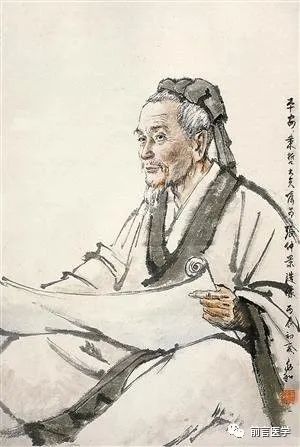
Zhang Zhongjing,
A renowned physician from Nanyang, Henan (now Zhangzai Village, Rangdong Town, Dengzhou City, Henan Province).
He was a famous physician during the late Eastern Han Dynasty, revered as the “Sage of Medicine” by later generations.
Zhang Zhongjing extensively collected medical formulas and authored the monumental work “Shang Han Za Bing Lun (Treatise on Cold Damage and Miscellaneous Diseases)”. The principles he established for syndrome differentiation and treatment are fundamental to clinical practice in Traditional Chinese Medicine and represent the essence of TCM.
The “Sage of Medicine Temple” is located on the banks of the Wenliang River in the eastern part of Nanyang City. It is a memorial site for Zhang Zhongjing, a great physician of the Eastern Han period, who is revered as the “Sage of Medicine” in Chinese history.

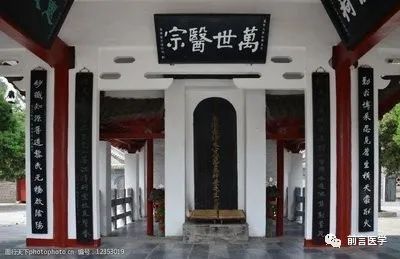
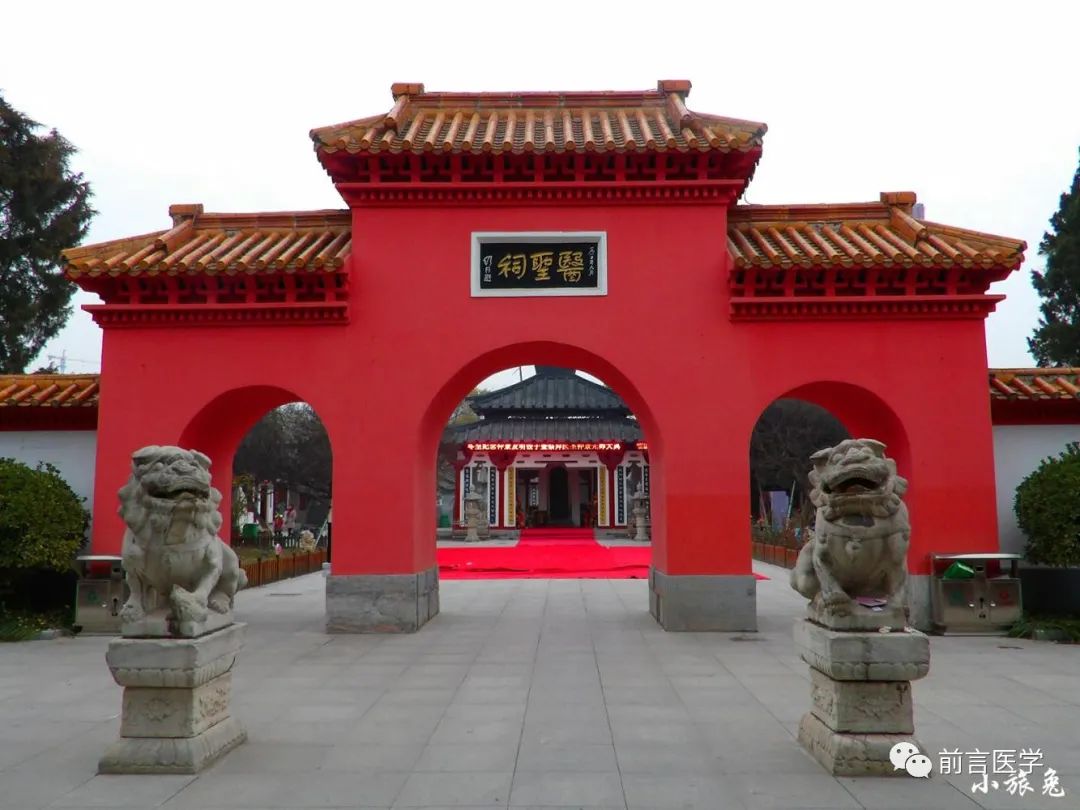
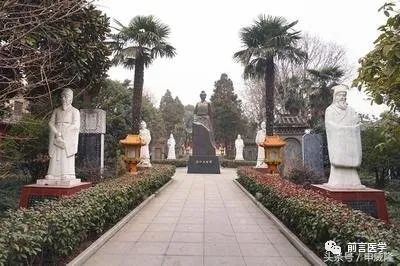
I am not a famous physician and do not have any secret formulas. I have simply learned some TCM, Western medicine, and acupuncture at my family’s clinic, and later studied for six years at a medical school; after that, I followed doctors in clinics and hospitals for several years, and now I practice medicine. Writing on WeChat is just a way to preserve articles for easy access and to discuss treatment experiences with colleagues.
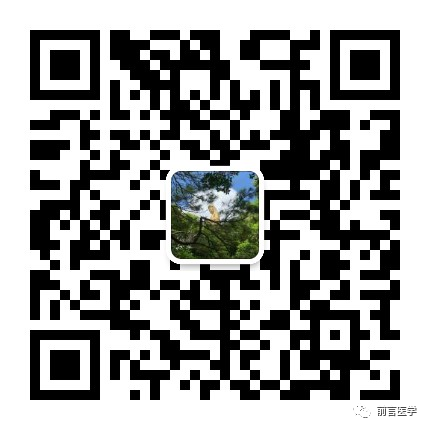
········································································ ································································································ ························ If you like this article, please follow our WeChat public account or give us a thumbs up, it will encourage us to keep working hard.

